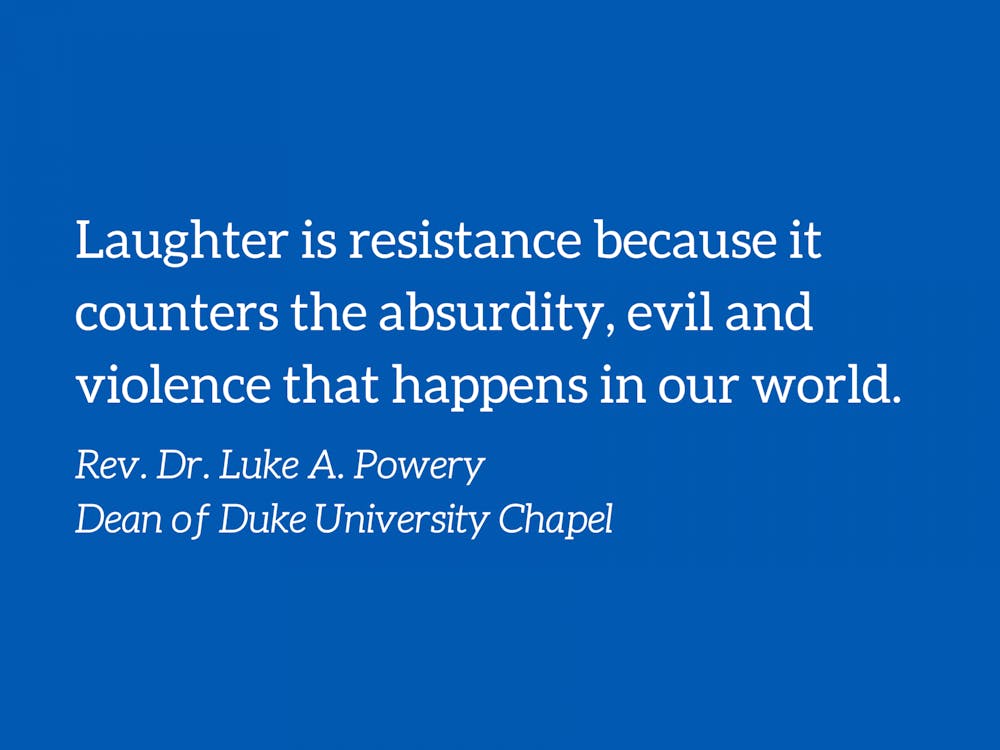There’s a cultural myth within African American folklore about the character High John de Conqueror. Anthropologist Zora Neale Hurston tells a story about him and how he helped enslaved Blacks survive harsh realities. He took them away on a trip to heaven to see the Old Maker without the white slave master realizing what was happening. When they returned from their trip, they were strengthened and renewed because of the two gifts they had received. The two gifts High John gave them to endure their brutal, inhumane situation were the gifts of laughter and song.
Song has been called “the souls of black folk” by W.E.B. Dubois in his book with that title, in which each chapter begins with a musical epigraph of a Spiritual melody without words. The Spirituals, songs of the enslaved, were musical memorabilia created on the anvil of misery. They were aesthetic, nonviolent tools of survival. In this historical setting, it has been said that the machete was dull in the cotton field without a song.
Even throughout my own family history, song has been so important, such a critical part of living. Singing at home together, making some joyful noise. Singing in church choirs with the accompaniment of a Hammond B3 organ. Singing was life way before I majored in music as an undergraduate student. It was my soul.
But for me, laughter has also been a key lifeline and has become more and more important and life-giving on my journey as I get older. My mother is known to have a free laugh full of life. One of my aunts used to say that I could even make the devil laugh. I don’t know about that but I have found laughter to be freedom, embodied joy, resistance and an expression of love, regardless of the circumstances of life.
It is freedom in that the predicaments of life do not bind my soul. They might affect my body as they do during this COVID-19 age but they do not strangle my soul. Laughter breaks the chains that want to enslave our hearts. Laughter helps us win from within. It is embodied joy as it cannot be done without the inclusion of our bodies, even bodies that have been beaten and broken; it is a whole reclamation of ourselves as humans and a holy joy amid sorrowful situations. Laughter is resistance because it counters the absurdity, evil and violence that happens in our world. It refuses to be silent and gagged by all the gore. It voices a hope for something more and it knows something more. Like the enslaved would sing in the face of terror, “trouble don’t last always.” And laughter is love as well, a love for life and gratitude for being alive even while so much death surrounds us.
I laugh as a person of faith because I trust there is a transcendent One who holds us all even in these uncertain days. I laugh with my ancestors and sing, ‘trouble don’t last always.’ I laugh because so much of life is truly unbelievable and out of our control. Yet I laugh as I live in order to keep living, in order to survive and even thrive, in order to win from within.
High John knew something that we need to know today. He knew laughter was a gift. So I hope that you might receive this gift willingly during such a strange time in the world and on campus. It is hard on so many levels, but yet, if you’re reading this, you’re alive! You have the gift of life and that is reason enough to laugh out loud and laugh with love. Enjoy the gift of life that is yours today. Discover a source for laughter if there isn’t enough of it in your life for laughter is good medicine, good for your soul, body, heart. It will keep you well during these tough times and unusual days.
As we begin a new academic year, I hope that it will be a year full of laughter in your life. I’ll be listening for that sound of freedom, joy, and love, a sound that you are winning from within.
Get The Chronicle straight to your inbox
Signup for our weekly newsletter. Cancel at any time.

